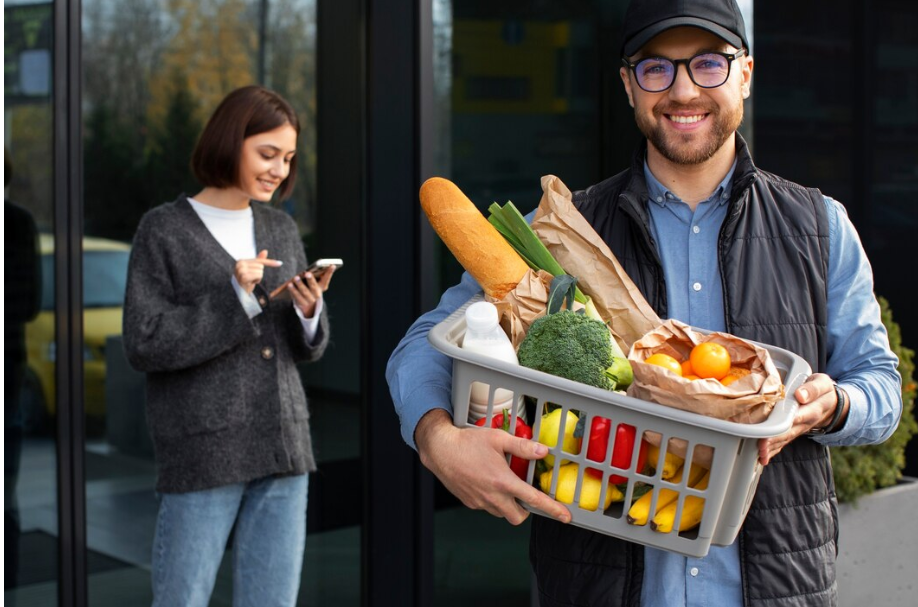Grocery shopping is a fundamental aspect of daily life, as a routine that brings both necessity and a touch of joy. It’s an activity that goes beyond merely purchasing food because, it’s an experience that connects us to our culture, our preferences, and the people we care about. Whether it’s selecting the freshest produce, finding the best deals, or bringing home favorite treats, grocery shopping is an act of care and consideration. In the context of language learning, this everyday task offers a rich opportunity to practice and acquire new vocabulary, making it a practical and engaging way to enhance our communication skills. By immersing ourselves in the language used during grocery shopping, we not only become more adept at navigating markets and stores but also deepen our connection to the cultural nuances that come with it. This introduction sets the stage for exploring the vocabulary and phrases associated with grocery shopping, particularly in Levantine Arabic, through a warm and relatable narrative.
In this heartwarming scene, we witness a loving exchange between two partners as they come together after a trip to the supermarket. The dialogue is a beautiful blend of Arabic and English, capturing the affection and everyday simplicity of their relationship. From expressing gratitude for the small errands to enjoying the freshness of the groceries, this interaction showcases the tender moments that make up their daily life.
The Video Script:
Man:
Allo hayete jebtelek kel chi talabti, men el supermaket․
Hello, my darling! I brought you everything you asked for from the supermarket.
ألوا حياتي! جبتلك كل شيئ طلبتيه من السوبرماركت.
Man:
Haydol kil el ghrad li badik yehoun․
These are all the items that you wanted.
هيدول كل الغراض لي بدك يهون.
Woman:
Shukran hayete 3am ta3abtak ma3e
Thank you, my love. I truly appreciate what you have done for me.
شكرا حياتي، عم تعبتك معي.
Man:
Habibe, ta3e choufe hal tifeha chakla bitchahe
My love, come and see this apple; it looks so appetizing.
حبيبي، تعي شوفي هالتفاحة شكلها بشهي.
Haydol kil el ghrad li badik yehoun․
Man:
W rihit hal banadoura kteer taybe
And the smell of this tomato is so delicious.
وريحت البدورة كتير طيبة.
Woman:
El khibez taza. Rah a3mol 3asir el laymoun.
The bread is fresh. I will make some lemon juice.
الخبز طازة. رح اعمل عصير الليمون
Woman:
Ma bitzakar talabet minak hamoud
I don’t recall asking you for lemon.
ما بتذكر طلبت منك حامض.
Man:
Mbala! Layke! Katabta 3al Whatsapp
Yes! Look! I wrote it on WhatsApp.
مبلا! ليكي! كتبتها عالواتساب.
Woman:
Tayeb yalla ta nhot el khodra w el fweke bil borad
Okay, then let’s put the vegetables and the fruits in the fridge.
طيب، يلا تنحط الخضرا والفواكي بالبراد
Grocery shopping is a routine activity that offers an excellent opportunity to learn and practice Levantine Arabic vocabulary. In this section, we explore various items commonly bought from the supermarket and their corresponding terms in Levantine Arabic, framed within the context of a heartwarming interaction between two partners.
The scene begins with one partner returning home with groceries. They greet each other warmly, using affectionate terms such as “my darling” (حياتي, hayete) and “my love” (حبيبي, habibi). This affectionate language sets the tone for the entire interaction, highlighting the care and thoughtfulness behind the simple act of grocery shopping.
-
Supermarket and Items:
The partner who did the shopping mentions bringing everything requested from the supermarket (السوبرماركت, al-supermarket) and shows all the items (غراض, ghrad) that were bought. This introduces the key terms for “supermarket” and “items.”
-
Fruits and Vegetables:
As they go through the groceries, specific items are highlighted. The apple (تفاحة, tifeha) is noted for looking appetizing (بشهي, bishahe), and the tomato (بدورة, banadoura) is described as having a delicious smell (ريحة, riha) that is very appealing (طيبة, taybe). These descriptions help in associating the vocabulary with sensory experiences.
-
Fresh Bread and Lemon Juice:
The freshness of the bread (خبز, khibez) is emphasized, described as fresh (طازة, taza). Additionally, there is a plan to make lemon juice (عصير الليمون, 3asir el laymoun), introducing the word for “lemon” (حامض, hamoud).
-
Thankfulness and Appreciation:
Gratitude is expressed with “thank you” (شكرا, shukran), along with an acknowledgment of the effort made, which deepens the emotional connection in the dialogue. This interaction shows how everyday tasks can be filled with appreciation and love.
-
Communication and Clarification:
The dialogue includes a moment of clarification where one partner doesn’t recall asking for lemons, leading to checking a message on WhatsApp (الوتساب, al-WhatsApp). This everyday situation is a practical way to learn and use the vocabulary in a real-life context.
-
Putting Away Groceries:
Finally, the partners decide to put the vegetables (الخضرا, el khodra) and fruits (الفواكي, el fweke) in the fridge (البراد, el borad). This practical action helps reinforce the terms for common household items.
In summary, this scene is not just about grocery shopping but an opportunity to learn and practice Levantine Arabic vocabulary in a meaningful and emotionally rich context. In addition to the loving interaction between the partners adds warmth and depth, making the learning process engaging and memorable.

